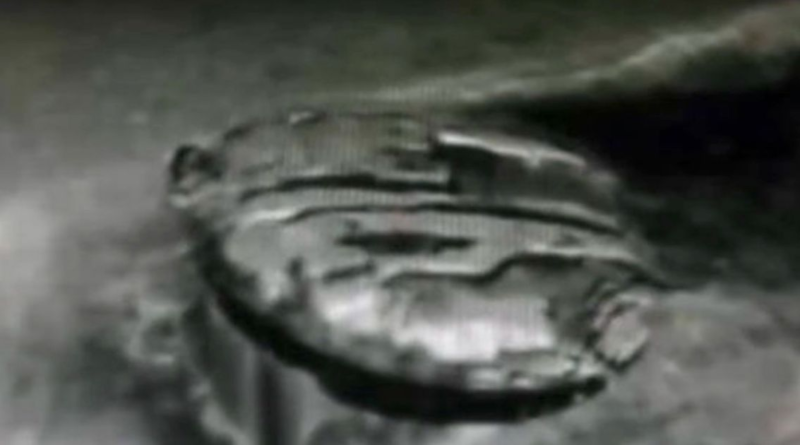Mystery of 'UFO' at bottom of Baltic sea solved – and it's not what you think – The Mirror
The object, estimated to be over 140,000 years old, has for years left people puzzled as to what it is, or how it got there – with many assuming it was a crashed UFO
The mystery behind a strange, unexplained object at the bottom of the Baltic Sea – which many suspected was a UFO – may have finally been solved.
The object is thought to be over 140,000 years old and formed out of straight and angular pieces of metal. Divers who had set out to explore a shipwreck first discovered the object, which has for years left people puzzled as to what it is, or how it got there. In 2011, Swedish explorers Peter Lindberg and Denis Asberg were in the northern Baltic Sea looking for treasure, when their sonar radars detected the 70ft long Millennium Falcon-looking piece in the canyon of an underwater mountain in the Gulf of Bothnia.
Asberg told TV4 in Sweden at the time: “We were really surprised and puzzled. We were thinking, what is it that we have found here? This is not a wreck. At that time we thought for sure there was a natural explanation.
"We wanted to look into it some more and decided to keep this totally quiet. We contacted geologists, and marine biologists and when they said they had never seen anything like this, of course, more thoughts were triggered. It could be something really awesome that we’ve found."
Adding to the mystery of the structure, the explorers said there appeared to be a long "stair-like formation" leading to a dark hole and another unknown object around 200m away. It prompted wide speculation, with some guessing it could be the remains of the lost underwater city of Atlanta, a rouge member of an alien UFO fleet that crashed on the sea bed, or some kind of anti-submarine device left over from the Second World War.
However, some scientists have said that it's not made of natural materials and is instead constructed of metal. Another strange feature is that electrical and satellite equipment reportedly cuts out when in close proximity to the object, according to Ocean X diver Stefan Hogerborn. He said: "Anything electric out there, and the satellite phone as well, stopped working when we were above the object, then when we got away about 200 metres, it turned on again."
Sat nearly 300ft below the surface, the Ocean X team continued to explore the object for years after its discovery, including returning to the scene to produce a documentary in 2016 and taking samples from the site with the intention of finding out the truth behind it. However, others have attempted to end speculation, claiming it is simply a natural, geological formation.
Volker Brüchert, a Stockholm University geologist, reportedly studied some of the samples collected by the team and said: "What has been generously ignored by the Ocean-X team is that most of the samples they have brought up from the sea bottom are granites and gneisses and sandstones." He believed there was nothing mysterious about it, saying: "I was surprised when I researched the material I found a great black stone that could be a volcanic rock. My hypothesis is that this object, this structure was formed during the Ice Age many thousands of years ago."
Göran Ekberg, a marine archaeologist at the Maritime Museum in Stockholm, said: "A natural, geological formation can't be ruled out. I agree the finding looks weird since it's completely circular. But nature has produced stranger things than that."
Research undertaken by Stockholm University later found that the Baltic Sea anomaly is the remains of a process of glacial movements that took place in that area of the ocean in the Ice Age period and could account for how the object reached its location.
Mr Lindberg said at the time: "I have been the biggest sceptic, I was kind of prepared for finding just stone. For me, it has been an amazing experience. I think it is very odd in its shape. It is tough to give an explanation as to what it might be exactly since different scientists have many different theories. Whatever it is, it is something we do not usually find in nature sitting in the dark cold depths of the Baltic Sea."
Sign up to FREE email alerts with news to brighten your day



